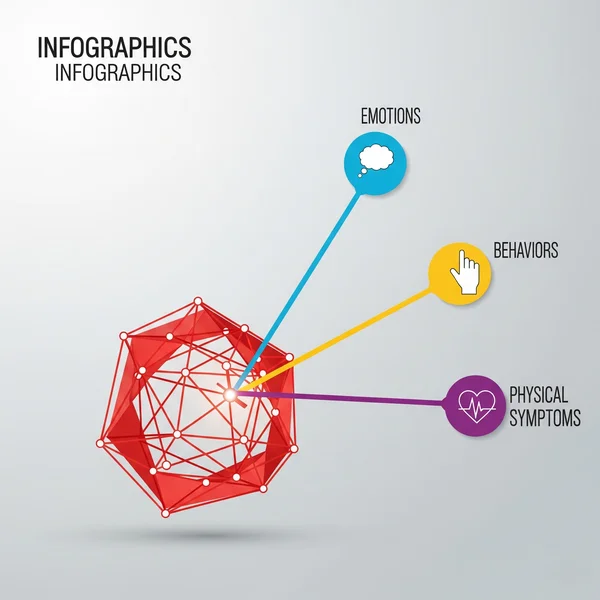Do I Have Anger Issues? A Free Self-Assessment Test & Guide
July 6, 2025 | By Landon Brooks
Feeling angry is a normal, healthy human emotion. It's your mind's natural response to perceived threats, injustice, or frustration. But what happens when that anger feels too frequent, too intense, or spirals out of control? You might start wondering, "How do I know if I have anger issues?" This is a critical question many people ask themselves when their anger starts to negatively impact their life, work, and relationships. If you're seeking clarity, this guide is for you. We'll walk you through a detailed self-assessment checklist and explain how a scientific anger issues test can provide the definitive answers you need.

What Does "Having Anger Issues" Really Mean?
First, let's clarify the difference. Experiencing anger is an event; having "anger issues" is a pattern. What's the difference between anger and anger issues? It's about frequency, intensity, and impact. Anger issues, or problematic anger, refer to a persistent difficulty in managing and expressing anger in a healthy way. This isn't just about feeling mad; it's about anger that is disproportionate to the situation, lasts too long, and leads to destructive consequences. Recognizing this pattern is the first step toward effective anger management.
The Core Signs of Anger Problems: A Self-Assessment Checklist
What are the signs of anger problems? They often manifest across three key areas: your emotions, your behaviors, and even your physical body. Go through the following checklist and see how many points resonate with your experience.

Emotional Signs of Uncontrolled Anger
- Constant Irritability: Do you often feel annoyed, impatient, or on edge, even over small things?
- Overwhelming Rage: Does your anger feel like a tidal wave, quickly escalating from mild annoyance to intense rage?
- Chronic Anxiety or Moodiness: Do you notice a persistent feeling of anxiety or find your mood shifting unpredictably?
- Difficulty Calming Down: Once you're angry, does it take a very long time for you to feel calm again?
Behavioral Signs to Watch For
- Frequent Verbal Outbursts: Are you often raising your voice, shouting, screaming, or engaging in frequent, heated arguments?
- Aggressive Behavior: Do you find yourself slamming doors, breaking things, or becoming physically intimidating when you're angry?
- Sarcasm and Hostility: Do you regularly make cynical or hostile remarks, or engage in name-calling during disagreements?
- Strained Relationships: Have friends, family, or colleagues told you they feel like they're "walking on eggshells" around you?
Physical Symptoms Linked to Anger
- Increased Heart Rate: Do you notice your heart pounding in your chest when you feel anger building?
- Muscle Tension: Are you frequently clenching your jaw, balling your fists, or feeling tension in your shoulders and neck?
- Headaches and Dizziness: Do you experience frequent headaches or feel dizzy during or after an angry episode?
- Feeling Exhausted: After an outburst, do you feel physically and emotionally drained?
If you found yourself nodding along to several points on this list, it’s a strong indicator that your anger may be a significant issue. This self-check is a great starting point, but to truly understand your unique anger profile, a more structured approach is needed. This is where an objective anger problems test can be incredibly valuable.
Why a Self-Check Isn't Enough: The Role of an Anger Issues Test
A checklist gives you a general idea, but a scientific test provides precision. An online anger self-assessment is subjective, influenced by your current mood and self-perception. A well-designed test, however, goes deeper.
- Moving Beyond Subjectivity: A structured test uses carefully crafted questions to provide an objective score, removing guesswork.
- Understanding the "Why": A quality test for anger doesn't just tell you if you have a problem; it helps you understand why. It can reveal your specific triggers, the breadth of situations that provoke you, and any underlying hostility.
- Getting a Detailed, Actionable Report: The best tests provide a comprehensive report that breaks down your anger profile. This isn't just a label; it's a roadmap you can use to start making meaningful changes.
Taking the First Step: From Awareness to Action
Recognizing that you might have anger issues is not a sign of weakness—it's a sign of profound strength and self-awareness. It's the first and most crucial step on the path to regaining control and improving your quality of life. You've already started that journey by reading this guide.
The next step is to get a clear, scientific baseline of your anger patterns. Don't stay in the dark, wondering and worrying. Empower yourself with knowledge.

Ready to get a clear picture? Take our free, confidential Multidimensional Anger Test now and receive a detailed report to help you understand your unique anger profile.
Frequently Asked Questions About Anger Issues
How do I know if my anger is a serious problem?
If your anger is negatively affecting your health, relationships, career, or causing legal trouble, it's a serious problem. If people close to you have expressed concern, that's another key sign. An objective assessment can provide a definitive answer, and you can get started with our anger test here.
Can you get tested for anger issues professionally?
Yes. A therapist or psychologist can administer various psychological assessments. Our Multidimensional Anger Test is designed to be a reliable and accessible first step, providing insights similar to those used in professional settings to help you understand if further consultation is needed.
What's the difference between anger and aggression?
Anger is an emotion—an internal feeling. Aggression is a behavior—an external action intended to harm. While intense anger can lead to aggression, they are not the same thing. Understanding your anger is key to preventing it from turning into aggression.
Is an online anger test accurate?
The accuracy depends entirely on the test's design. Simple "quiz" style tests are for entertainment. However, a test based on validated psychological models, like our Multidimensional Anger Test, can provide highly accurate and valuable insights into your emotional patterns.